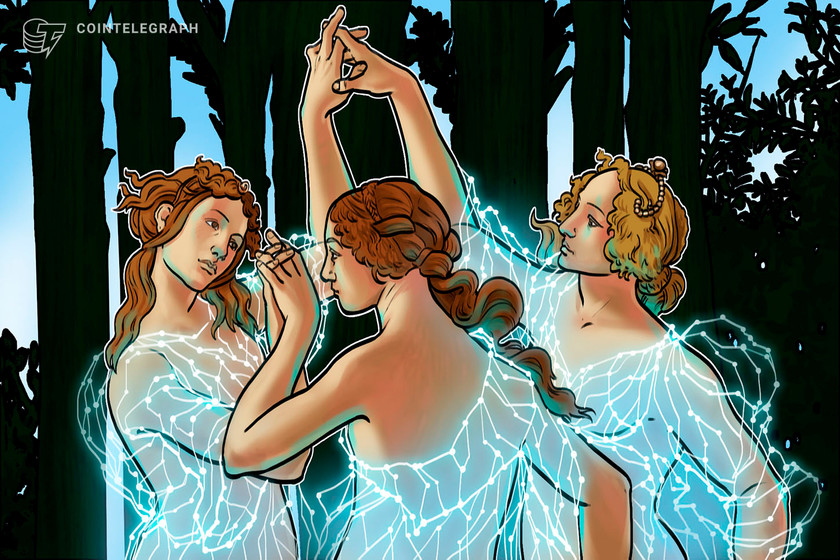DAOs are in era 3.0 thanks to an infrastructure renaissance: Report

There are over 4,000 active DAOs, with treasuries totaling around $20 billion, which has many speculating that DAOs may still be a growing trend.
Decentralized autonomous organizations, or DAOs, have caught the imagination of many in the blockchain industry. What was once just a theory talked about on internet forums in the early days of the blockchain revolution has become a growing trend in how organizations form. Cointelegraph Research has unveiled a primer on DAOs, exploring their historical origins up through how they are currently impacting the cryptoverse.
There has been a massive spike in DAOs — or at least the modern conception of them — with over 4,000 active as of the latter half of 2022, according to data from Snapshot. Every cryptocurrency holder and investor can gain valuable insights from Cointelegraph Research’s “DAO: The Evolution of Organization” report to help understand where DAOs are in their evolution.
Download this report on the Cointelegraph Research Terminal.
The three eras of DAOs
The report seeks to understand what DAOs are, starting with the history of how the concept of a DAO began. The research identified the first era, DAO 1.0 — a time when DAOs were analog and lacked an overarching technology, which allowed for governance and efficient interaction. It started in academic business journals in the 1950s and 1960s, with the term first coined in 1997, 11 years before Satoshi Nakamoto’s Bitcoin (BTC) white paper appeared.
It can be argued that Bitcoin was the first modern DAO. The start of the blockchain revolution allowed for major advancements and the transition to the era of DAO 2.0 when on-chain governance was pioneered by Dash (DASH) in 2015. The modern era of DAO 3.0 truly exploded with the proliferation of tools and infrastructure to support efficiently setting up and running DAOs.
According to the Cointelegraph Research Venture Capital Database, while 40% of DAOs today focus on decentralized finance, many others have been created with focuses on social and political causes (15%); physical assets represented by digital tokens (such securitized housing), GameFi and nonfungible tokens (26%); and infrastructure and tooling (14%).

To DAO, or not to DAO, that is the question
Many may wonder if it is better to hodl a DAO token or a coin from a layer-1 blockchain like Ethereum, on which many DAO protocols are built, for the best return on investment. Analyzing some of the largest DAO tokens by market capitalization from January 2021 through the summer of July 2022 shows some surprising results.
During the bull run, most of these DAO tokens outperformed Ether (ETH). However, only one, PancakeSwap’s CAKE (CAKE) token, stayed in the positive the entire period. While the past does not equal the future, there may be something to learn from this, as DAO tokens may rise faster during periods of extreme bullish sentiment — and fall further during bearish market tendencies as well.

Cointelegraph Research’s report walks readers through various case studies, including OlympusDAO, Coinshift and the 2016 hack on The DAO. The infamous attack resulted in the loss of over $60 million in funds and a hard fork that led to the appearance of two different blockchain protocols: Ethereum and Ethereum Classic. The report also presents tokenomics, governance and other key metrics to offer insights into how DAOs function today — and perhaps, what DAOs will look like in their 4.0 era.
The Cointelegraph Research team
Cointelegraph’s Research department comprises some of the best talents in the blockchain industry. Bringing together academic rigor and filtered through practical, hard-won experience, the researchers on the team are committed to bringing the most accurate, insightful content available on the market.
Demelza Hays, Ph.D., is the director of research at Cointelegraph. Hays has compiled a team of subject matter experts from across the fields of finance, economics and technology to bring to the market the premier source for industry reports and insightful analysis. The team utilizes APIs from a variety of sources in order to provide accurate, useful information and analyses.
With decades of combined experience in traditional finance, business, engineering, technology and research, the Cointelegraph Research team is perfectly positioned to put its combined talents to proper use with the “DAO: The Evolution of Organization” report.
The opinions expressed in the article are for general informational purposes only and are not intended to provide specific advice or recommendations for any individual or on any specific security or investment product.



